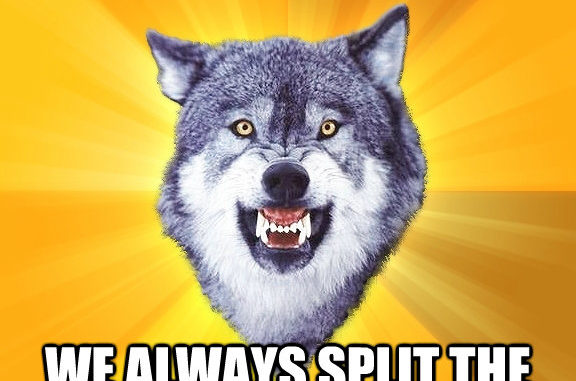
Welcome to the HoloNet Uplink, citizen. This series focuses on Fantasy Flight Games’ Star Wars Roleplaying Game, with content aimed mostly at the Gamemaster. Threats, adventure seeds, rules supplements, and more are all to come for those who access The HoloNet Uplink.
I’ve preached the virtues of splitting your party in the past, and that opinion of mine is absolutely coming to a middle. Splitting your party is a technique GMs should keep close at hand. Today I am not exactly talking about splitting up your players, though. What I am suggesting is that you consider starting the campaign with the party not yet formed, in effect with the party split right at the beginning.
This may sound strange, but hear me out. By splitting your party in smaller groups to run some “pre-campaign” adventures you can really achieve some major benefits. I’ve done this to great results: I’ve seen stronger bonds forged between characters, characters that have already “found themselves” before the story began, and most topically for this series I’ve felt that Star Wars serial adventure vibe. Split you PCs into smaller groups and run a Prologue session or two for them. Then bring the groups together, and enjoy the fruits of the groundwork you have laid. Let me point to some classic Originals Trilogy examples before expanding on these points.
In A New Hope, we can roughly map the opening several scenes to this model. Luke and Obi-wan Kenobi receive a relatively slow call to adventure with an encounter or two along the way. Han and Chewie are reeling from dropping their cargo and I bet that would make a good session. Finally, Leia gets a solo session of interrogation and social interaction with the big bad. Once these characters join up on the Death Star we can already see the bonds between them at play. Han and Chewie’s friendship is on display when Chewie accompanies Han on his desperate charge after the stormtroopers. Luke and Han butt heads since this is their first time working together. Luke feels the loss of his mentor when Obi-Wan Kenobi sacrifices himself. These bonds and currents feel true because we’ve spent time as an audience watching scenes to build those bonds.
My personal favourite, from Return of the Jedi, is the rebel mission to Jabba’s Palace. The party, so to speak, starts split. Each character infiltrates Jabba’s Palace in their own way, which communicates information to the audience. The droids are sent in as part of Luke’s plan and to provide some comic relief. Leia, posing as Boussh, infiltrates with Chewbacca in chains – demonstrating the trust Chewie has for Leia and their commitment to rescuing Han. Lando easily makes his way in, requiring little introduction, due to his background as a scoundrel. Finally, Luke gets a time to shine and eventually overstep his abilities, as well as separate him from his friends to provide an opportunity for the Dark Side’s temptation. Once the cast is back together the adventure begins in earnest, with the heroes in a rough spot in true Star Wars fashion.
With that in mind, let us consider the benefits.
When you run small group prologue sessions you can foster strong bonds between select PCs. I did this with some amazing results in a Knights of the Old Republic era Saga Edition campaign I ran some years back. I paired up one of my more shy players with a more dynamic player who always could be counted on to try a unique approach to problems. Their characters were pretty close to a perfect match to their play styles, the shy player running a Republic spy while the more dynamic player had an adventurous Mandalorian merc. I cooked up the session, tracking down a smuggler contact of the spy’s, to provide opportunities for both players to shine in their own way. The setup was that these two PCs had worked together a few times in the past, and the spy was calling in a favour for some extra help on his current. This was pretty easy to do considering I was planning for only two PCs. It went off great, allowing both players to share the spotlight and more importantly build shared experiences together. When these two PCs linked up with my other three I could definitely tell they shared a bond that persisted throughout the campaign over and above the camaraderie with other party members.
Another benefit to this approach is that players will have had time ahead of your first main session to get a solid feel for their characters. How often as a player do you need some play time to make strong choices about your character’s personality and behaviour? Much like early episodes in the first season of a TV show, the first few sessions of a campaign can have early installment weirdness as players get used to their characters. By running small group prologue sessions, this “feeling out” of characters can happen ahead of the first main group session. This allows each character to be more developed when the entire party first comes together to play.
If you have yet to try this, I highly recommend it. The nuance in relationships between characters is well worth it, and it’s felt right from the first combined session when the “band gets together.” This approach may be a bit more work for the GM and takes a bit more time, but in my experience it is well worth your time, especially in the Star Wars setting.
So have you ever tried something like this? Maybe plan on trying it out? I’d love to hear from you in the comments section below.
Christopher Hunt
Latest posts by Christopher Hunt (see all)
- Command School – Deterrence and Compellence - July 11, 2019
